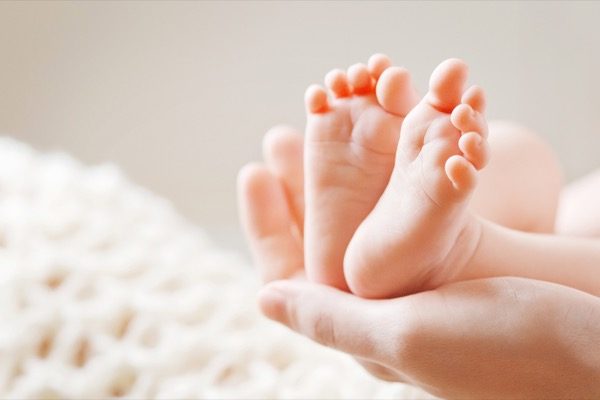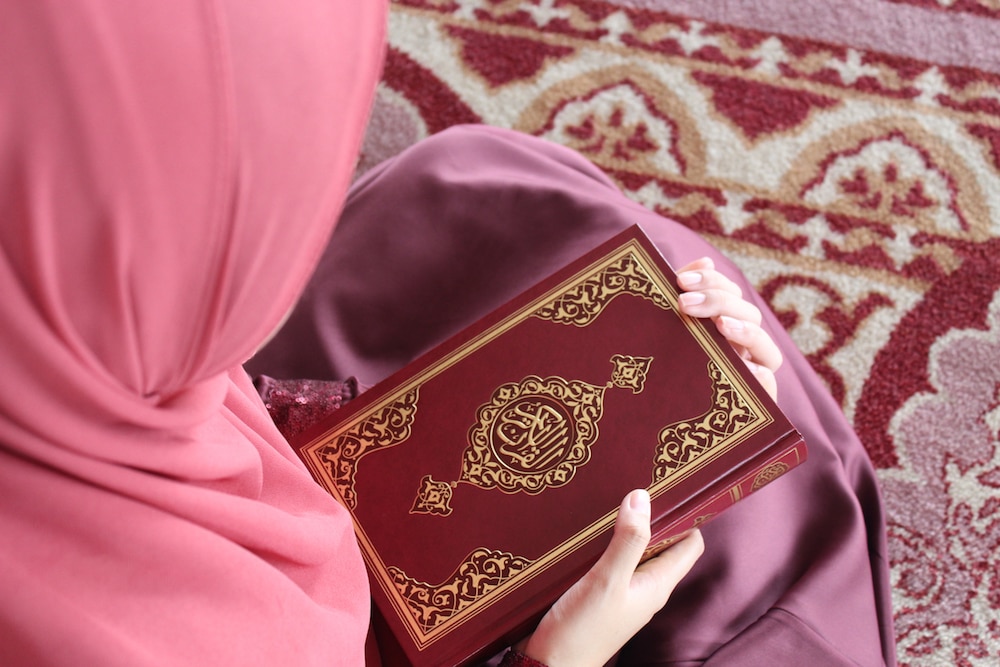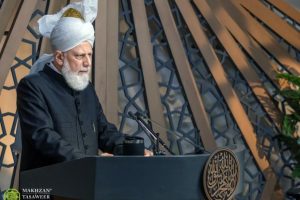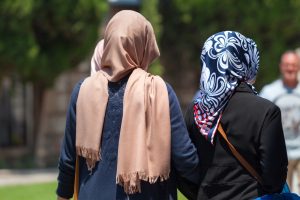The author hopes that, upon reading this article, you will engage in a thoughtful examination of your individual behaviours and actions toward women. This introspection is essential in promoting a compassionate and equitable society.
(Note: the author has chosen to use the term ‘Sikhi’ instead of ‘Sikhism’ since it is the term originally used by Sikhs)
True Essence of Mother’s Day

© Shutterstock
Mother’s Day is celebrated globally, to honour the immense sacrifices that women make when bringing children into the world and nurturing them to their full potential. Sadly, in many parts of the world, the lives of women are much harder than they need to be. In 2023, the U.N. Office on Drugs and Crime reported that 51,000 girls and women were murdered by their partners or family members. This heartbreaking statistic shows the urgent need for action to combat violence against women and protect the most vulnerable in our society. It is truly tragic that, in certain countries, the news of a female child is even met with disappointment by some people. In many instances, these precious girls are disregarded, neglected, and even abandoned or, in the worst cases, tragically killed. This scourge is an ancient one; over 1400 years ago the Holy Qur’an condemned the practice of female infanticide: “For what crime was she killed?” (81:10)
This often occurs in societies that simultaneously demands the birth of a healthy, well-nourished child from the very woman who has been subjected to unimaginable hardships and inhumane treatment. This horrifying cycle perpetuates the immense suffering of both mother and child, leading to a devastating loss that echoes through generations. A simple recipe to reverse this trend is to instil the principle of “Love for All and Hatred for None”, which is the motto of the Ahmadiyya Muslim Community.
A girl undergoes a significant transformation in her life journey as she transitions from girlhood to womanhood, getting married and becoming pregnant, ultimately leading to childbirth. For nearly two decades, she has been actively involved in raising her child. Society cannot repay the debt owed to mothers by celebrating Mother’s Day just once a year; in fact, their sacrifices should be acknowledged every day. It is essential to honour the status of mothers, as Allah the Almighty, who empowers them, has clearly acknowledged both the beauty and the weight of their journey.
Motherhood and Mercy

© Shutterstock
When a girl reaches the stage of womanhood and marries, with the blessings and mercy of Allah the Almighty, she conceives. In her womb, the mother carries the unborn baby for approximately nine months. In Arabic, the words for ‘mercy’ (‘raḥmah’) and ‘womb’ (‘raḥim’) come from the same root ‘r-ḥ-m’. In Islam, Allah the Almighty has at least 99 names, two of which are ‘Ar-Raḥman’ (‘the Gracious’) and ‘Ar-Raḥim’ (‘the Merciful’) which come from the same root.
Just as a womb provides a safe haven for new life, reflecting compassion and care, Ar-Raḥman (The Gracious) embodies universal mercy, much like a mother’s unconditional love. Meanwhile, Ar-Raḥim (The Merciful) represents consistent acts of mercy, much like a mother’s enduring support and kindness throughout her child’s life. Therefore, the mercy and compassion embodied by Ar-Raḥman and Ar-Raḥim resonate deeply with the nurturing qualities often associated with mothers, emphasising the importance of love and care in both the divine and human realms. A similar concept of blessing is found in Psalm 127:3, which states, “children are a heritage from the Lord, offspring a reward from him”. A similar connotation of blessing appears on GGS page 32, which mentions that “blessed is the mother who gave birth and respected is the father of one who serves True Guru and find peace”.
This unique gift distinguishes women from men; as they can bring new souls into the world, making them truly special [12]. The Holy books of Christianity (Psalms) and Sikhi (Guru Granth Sahib) (GGS) have stated the importance of the womb, highlighting the deeper meaning associated with the womb. Psalm 139:13 mentions the formation of a being in the mother’s womb. The GGS page 1289 also references the womb, stating that a human being emerges from the maternal womb, subsequently nourished by breastfeeding. The Holy Qur’an likewise states:
“And We have enjoined on man concerning his parents — his mother bears him in weakness upon weakness, and his weaning takes two years — ‘Give thanks to Me and to thy parents. Unto Me is the final return.” (31:15)
Status of Motherhood
Motherhood is a transformative experience that highlights a woman’s strength and resilience. Bearing a child ensures the continuation of our species and shapes future generations by instilling values and compassion. Recognising the sacrifices made during pregnancy and childbirth is vital for honouring and supporting mothers. Allah the Almighty has commanded us to show kindness to our parents.
The Holy Prophet Muhammad (sa) emphasised the significance of love and respect for mothers. He stated, “Paradise lies at the feet of the mother,” highlighting her importance. When asked who deserves kindness, he replied, “Your mother” three times before mentioning “your father,” illustrating the sacrifice, honour, and care for mothers in Islam. On another occasion, a man approached the Holy Prophet Muhammad (sa) and expressed his concerns about his mother’s bad temper. The Holy Prophet Muhammad (sa) reminded him that she endured nine months of pregnancy and countless sleepless nights to nurture him. When the man insisted, he had repaid her by helping her perform Hajj, the Holy Prophet Muhammad (sa) challenged him, asking, “Can you ever repay the pain she endured during your birth?”
This exchange highlighted the unparalleled sacrifices made by mothers and the deep gratitude owed to them. This teaches respect, patience, and understanding of a person in this context, a mother who, after enduring countless sacrifices, raises a child. Additionally, the definition of a Muslim is one who submits to the will of Allah the Almighty by having endless patience, especially in cases of parents.
The GGS page 473 mentions a similar viewpoint by emphasising the essential role of women in society. Guru Nanak Sb. ji stated that “From woman, man is born; within woman, man is conceived; to woman he is engaged and married. Woman becomes his friend; through woman, the future generations come. When his woman dies, he seeks another woman; to woman he is bound. So why call her bad? From her, kings are born. From woman, woman is born; without woman, there would be no one at all”
Importance of a Mother’s Role
The Holy Quran states that we should be exemplars of righteousness for our children (25:75). This highlights the shared responsibility of both parents in guiding their children towards righteousness. His Holiness Hazrat Mirza Masroor Ahmad (aba), the current Caliph of the Ahmadiyya Muslim Community, mentioned the importance of prayer in child-rearing during his address at the Annual Gathering of the Ahmadiyya Muslim Women’s Association on November 4th, 2007. He stated that prayer enhances devotion to righteousness and shields future generations from ethical dilemmas, guiding them towards a virtuous life. Moreover, mothers are essential in establishing a strong spiritual foundation. By praying for their children and instilling the values of devotion towards Allah the Almighty, they play a crucial role in nurturing a culture of righteousness. As caregivers, mothers assume leadership positions within their families, guiding them along the virtuous path as heads of the household.
About the author: Dr. Amr Singh Mann is a devoted Ahmadi Muslim, and his faith inspires and empowers him. Together with his wife, he embraces the joys and responsibilities of parenthood as the proud father of a newborn daughter. He consistently reflects on his spiritual growth through prayer and contemplation.




Add Comment